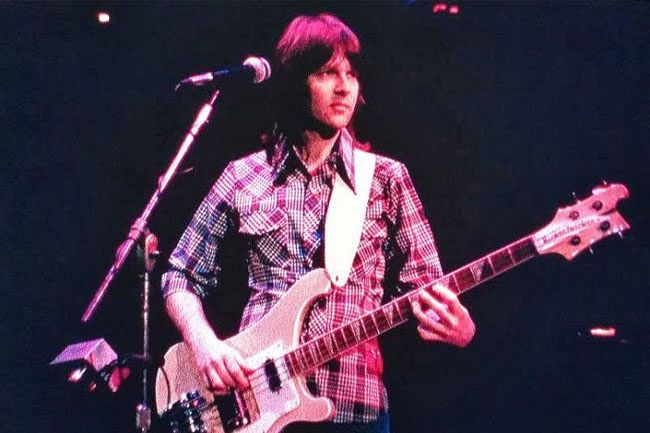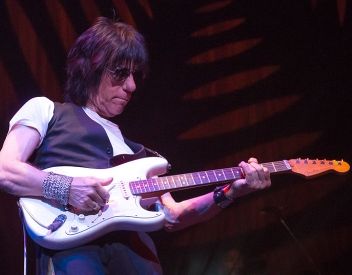Randy Meisner, a shy Nebraska farm boy who was a founding member of the quintessentially Californian supergroup, the Eagles, has passed away due to complications from chronic obstructive pulmonary disease (COPD).
This is a common lung condition that restricts airflow and breathing. The critically acclaimed bassist and vocalist was 77.
The Eagles are one of the most successful bands in music history, selling more than 150 albums around the world. In 2018, The Eagles: Their Greatest Hits (1971-1975) (originally released in 1976) surpassed Michael Jackson’s Thriller to become the best-selling album of all time with 38 million copies sold. At that point, Hotel California (also released in 1976) was third on the bestseller list with 26 million copies sold.
Meisner, however, was a reluctant rock star with a quiet, gentle nature who often capitulated to the alpha members of the group during his six-year tenure. Bandmate Don Henley said: “Randy was extremely uncomfortable with so-called superstardom.”
His former bandmate, Don Felder, called Meisner the “sweetest man in the music industry”.
Felder added, “He was a wonderful Midwestern guy with a great heart and a loving soul”.
Henry Diltz, who often photographed Meisner during the Eagles’ heyday and also during the '80s when Meisner was pursuing a solo career said:
“Randy Meisner was a very gentle soul. Pisces. A quiet and friendly guy. No aggressive vibe at all. Very sweet. He was so there and open.”
Randy was born Randall Herman Meisner on 8 March 1946, in the small rural settlement of Scottsbluff, Nebraska, where his parents ran a farm that grew beans, alfalfa, sugar beets and corn. Meisner recalled that his mother was always singing around the house and his maternal grandfather was a violin teacher.
After seeing Elvis Presley perform on The Ed Sullivan Show when he was ten, Meisner became interested in music. He got his first acoustic guitar when he was around 12 and later switched to bass guitar at the advice of a music teacher.
Meisner recalled:
“I loved R&B and the bass players on the Motown stuff were great. They really inspired me. I can’t read music. Once I learn a part, it’s there. My bass playing came real naturally.”
Meisner played in local bands as a teenager and in 1966, he moved to California with a band called The Soul Survivors who were later renamed The Poor because they weren’t making any money.
It was a tough existence for Meisner, who said:
“I never had a car, I had to walk. I sold the Los Angeles Free Press on Sunset and Highland. I made about five bucks a day.”
In 1968, Meisner joined a country rock group called Poco with Richie Furay and Jimmy Messina, formerly of Buffalo Springfield. However, he had a falling out with Furay, who reportedly wouldn’t let Meisner listen to the studio mix of their first album, Pickin’ Up The Pieces.
Meisner left the group before the album came out and was replaced by Timothy B Schmit. As a final insult, the band removed Meisner’s image from the album cover and replaced him with a dog.
In 1969, Meisner joined Rick Nelson’s outfit, the Stone Canyon Band. He also obtained steady work as a session musician with artists such as James Taylor and Waylon Jennings.
In 1970, following a difficult tour of Europe with the Stone Canyon Band, a homesick Meisner returned to Nebraska and briefly worked at a John Deere tractor dealership. Later that year, Nelson encouraged Meisner to return to Los Angeles to resume his music career.
While performing with Linda Ronstadt’s band, Meisner became friendly with Don Henley and Glenn Frey. They, along with Bernie Leadon, formed the Eagles in 1971 with Ronstadt’s blessing and scored a record deal with David Geffen’s Asylum Records. Their self-titled debut album was released in 1972.
While Frey and Henley sang lead on most of the Eagles’ songs, Meisner took over on ‘Take It To The Limit’, a heartfelt and plaintive ballad that appeared on the One of These Nights album in 1975 and soon became a crowd favourite.
Meisner said he wrote it one night at his home in Los Angeles.
He recalled:
“I was feeling kind of lonely and started singing ‘All alone at the end of the evening, and the bright lights faded to blue’, and it went from there.”
Meisner, who was painfully shy, said in interviews that he hated being the centre of attention. He also alluded to some creative differences between himself, Henley and Frey.
“No, I don’t go along with everything they say or do,” Meisner told rock journalist Cameron Crowe in a 1975 Rolling Stone cover story on the Eagles:
“For example, I’m probably the only one in the band who loves funky rock & roll, trashy music and R&B. And I don’t agree with some of our images either. But Don and Glenn have it covered. I guess I’m just very shy and nervous about putting myself on the line. They’re used to doing that.”
In addition to his work on ‘Take It To The Limit’, Meisner contributed high harmonies to ‘The Best Of My Love’ (1974) and the Eagles’ mega-hit, ‘Hotel California’ (1976).
During a massive 1977 tour promoting the Hotel California album, Meisner became more and more reluctant to perform. Suffering from exhaustion and depression over his failing marriage, Meisner reportedly had a major spat with Glenn Frey after refusing to perform an encore at a gig in Knoxville, Tennessee. Meisner, who was suffering from the flu at the time, was aggrieved about the perceived lack of sympathy from Frey and decided to quit the Eagles.
He said:
“When the tour ended, I left the band. Those last days on the road were the worst. Nobody was talking to me, or would hang out after shows, or do anything. I was made an outcast of the band I’d helped start.”
As an ironic aside, Meisner’s replacement in the Eagles was Timothy B Schmit, who had earlier usurped his role in Poco.
In a 1981 interview with People magazine, Meisner said:
“I could have tripled my money if I’d stayed. But I was just tired of the touring. It’s a crazy life that you live at twice the normal speed. When it got to the point of sanity or money, I thought I’d rather have sanity.”
In a 1996 interview with the Los Angeles Times, Meisner alluded to the debauchery on the road that pushed him to his limit.
“It was a crazy life,” he said. “There were a lot of drugs and a lot of booze and just a lot of what you did at the time.”
Meisner had some success as a solo artist with songs like ‘Hearts On Fire’ (1980) and ‘Deep Inside My Heart’ (also 1980). He also played on albums released by other performers, including James Taylor, Dan Fogelberg and Joe Walsh, another Eagles alumnus.
However, the later years were not kind to Meisner, who battled marital problems, alcoholism, drug abuse and mental health issues.
In 1988, Meisner was involved in a bizarre identity theft case when a man called Lewis Peter “Buddy” Morgan started impersonating him. Morgan had previously attempted to impersonate Don Henley but found that Henley was too well known. Because Meisner had kept a much lower profile, Morgan found that he could steal his identity to con musical instrument manufacturers, retailers, hotels, casinos and women.
Morgan’s true identity was not revealed until 1997 and the following year, he was sentenced to 16 months in gaol. Upon his release, Morgan continued to impersonate Meisner and was still doing it as late as 2009, using Meisner’s identity to book hotel rooms in Reno, Nevada. However, hotel owners eventually became wise to Morgan’s tricks and by swapping intel, managed to stop the fraudster in his tracks.
In 2016, Meisner suffered a personal tragedy when his wife, Lana, shot herself and died. Authorities ruled that it was an accident and that Meisner had no role in the tragedy. Surveillance tapes showed that Meisner was in another part of the house when it happened.
Meisner reunited with the Eagles in 1998 when they were inducted into the Rock and Roll Hall of Fame but refused an invitation to join them on a world tour in 2013, citing ill health. He added that bandmates had helped him cover his medical bills.
Meisner’s passing ignited the Twitterverse with friends and admirers around the world paying tribute to his talent.
In a joint statement, the surviving members of the Eagles said:
‘Randy was an integral part of the Eagles and instrumental in the early success of the band. His vocal range was astonishing, as is evident on his signature ballad, “Take It To The Limit”.’
In 2015, Meisner said in an interview:
“The purpose of the whole Eagles thing to me was that combination and the chemistry that made all the harmonies sound just perfect. The funny thing is after we made those albums, I never listened to them and it is only when someone comes over or I am at somebody’s house and it gets played in the background when I’ll tell myself, ‘Damn, these records are good’.”
At the time of writing, the Eagles were gearing up for a massive reunion tour. Henley is the only founding member who will return to the stage as Frey passed away in 2016. However, Frey’s son, Deacon, was announced as part of the lineup.
Jenny LeComte is a Canberra-based journalist and freelance writer.
 This work is licensed under a Creative Commons Attribution-NonCommercial-NoDerivs 3.0 Australia License
This work is licensed under a Creative Commons Attribution-NonCommercial-NoDerivs 3.0 Australia License
Support independent journalism Subscribe to IA.













